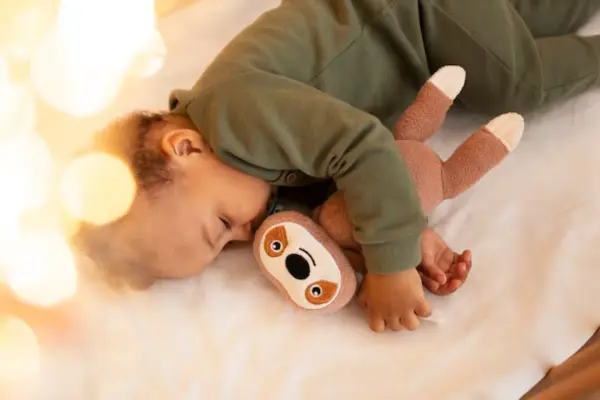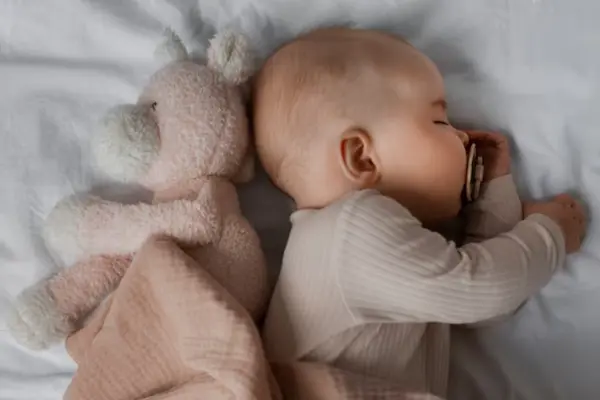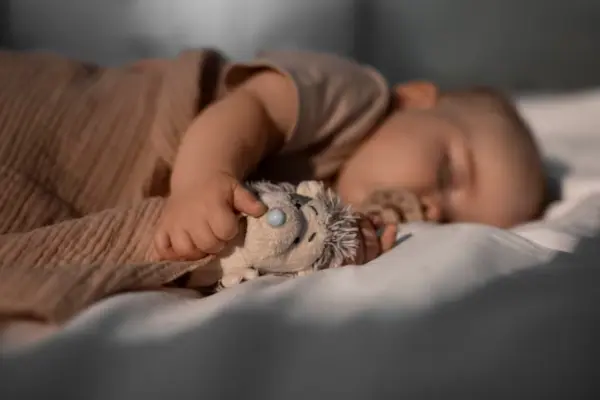As a parent, you know how important sleep is for your baby's health and development. A good night's sleep helps your baby grow, recharge, and maintain a happy mood. However, if your baby isn’t getting enough deep sleep, it can affect their overall well-being. Deep sleep is when the body and mind are fully rested, allowing for growth and energy recovery. Here are 5 signs that might indicate your baby isn't getting deep sleep.
1. Frequent Waking During the Night

One of the clearest signs that your baby isn’t getting deep sleep is waking frequently throughout the night. While it’s normal for babies to wake up for feeding in the first few months, older babies should be able to sleep for longer periods, especially after 4-6 months. If your baby wakes up every hour or two and is hard to settle back down, they may not be entering deep sleep stages, where they would naturally stay asleep for longer periods. Deep sleep is crucial for their physical growth and brain development, so frequent night waking could mean they are missing out on that essential rest.
2. Restlessness and Jerky Movements

Restlessness during sleep is another sign that your baby isn't getting enough deep sleep. You may notice that your baby is tossing and turning, or their limbs are jerking, twitching, or moving erratically even while asleep. This is often seen when babies are in lighter sleep stages, not deep, restorative sleep. When your baby is in a deep sleep, their muscles relax, and their body slows down, allowing them to rest fully. But if they are not reaching that deep stage of sleep, they may continue to move and make noises, disrupting their own rest.
3. Short Naps During the Day

If your baby is taking short naps, it may be a sign they aren't getting deep sleep at night. Babies who are sleep-deprived due to poor nighttime sleep may find it harder to nap during the day as well. You might notice that they struggle to fall into a deep nap, with naps lasting only 20-30 minutes. Deep sleep is important for both night and day rest, and babies who miss out on it may feel cranky or overtired, leading to shorter, less restful naps.
4. Crying or Fussiness After Waking Up

When babies don’t get enough deep sleep, they can wake up feeling more irritable than usual. If your baby is constantly fussy, crying, or difficult to calm down after waking up, it could be a sign they’re not entering the deeper sleep cycles that help them feel fully rested. Babies who don’t sleep deeply might also show signs of being overtired, making it harder for them to settle down. Proper deep sleep helps babies wake up refreshed and happy, so a cranky baby may need more restorative rest.
5. Difficulty Falling Asleep

Babies who are overtired or who haven't been able to get deep, quality sleep might also have difficulty falling asleep. If your baby seems restless or upset when you try to put them down for the night, it could be because they haven’t had enough deep sleep in the previous sleep cycle to feel truly relaxed. A lack of deep sleep affects their ability to enter a calm, peaceful state that allows them to drift off easily. This can result in bedtime struggles, and your baby might cry or resist sleep altogether.
What You Can Do to Help Your Baby Sleep Better

If you notice any of these signs, it’s important to make changes to your baby’s sleep routine or environment to encourage better rest. Here are some tips:
- Create a Calm Bedtime Routine: Set up a relaxing routine before bed to signal to your baby that it's time to wind down. This could include activities like a warm bath, gentle rocking, or singing lullabies.
- Ensure a Comfortable Sleep Environment: Make sure the room is quiet, dark, and at a comfortable temperature. Use soft bedding, a swaddle, or a sleep sack if necessary.
- Stick to a Consistent Sleep Schedule: Babies thrive on routine. Try to put your baby to bed and wake them up at the same times every day, even at weekends.
- Avoid Overstimulation Before Bed: Make sure that your baby isn’t too overstimulated right before sleep. Limit screen time or loud toys in the hour leading up to bedtime.

Conclusion
If your baby isn’t getting enough deep sleep, it can affect their mood, growth, and overall well-being. Look for signs like frequent waking, restlessness, short naps, fussiness after waking, and difficulty falling asleep. By creating a calming bedtime routine, ensuring a comfortable sleeping environment, and following a consistent schedule, you can help your baby get the deep, restorative sleep they need for healthy growth and development.